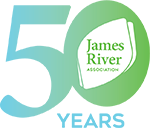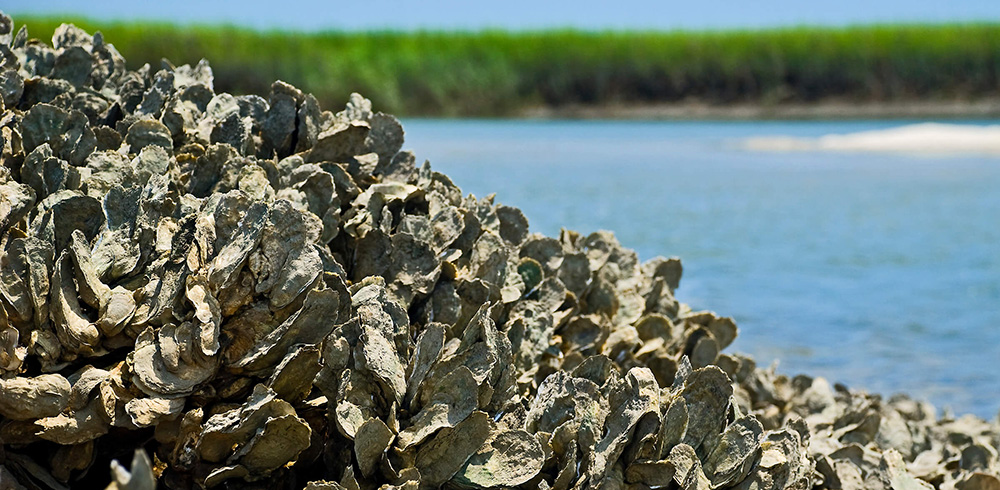Welcome back to the marsh! At this time of the year, the heat from the summer is beginning to fade and the vast expanse of Spartina (also called Cordgrasses) turns from vibrant green to a more subdued gold. Gulls and terns begin their southward migration, while sandpipers and waterfowl move in from their Arctic breeding grounds. All the while what is possibly the most important resident of the Lower James River is continuously filtering water and removing pollutants.
 Who could this be? Oysters of course!
Who could this be? Oysters of course!
The Eastern Oyster, Crassostrea virginica, is a bivalve mollusk that can be found from New England to the Gulf of Mexico. Before the time of European colonization, they formed miles and miles of reefs in the Chesapeake Bay and were responsible for filtering countless millions of gallons of water. In historic times, the water they filtered allowed for water visibility up to twenty feet!
Oysters are a keystone species for the James River and the Chesapeake Bay ecosystems. They also act as an indicator species. Their numbers will reflect a change in local water quality conditions, so they may be used to diagnose the health of the James. This is why we include them in our State of the James report every two years.
Oysters have long been harvested in the James River and other parts of the Chesapeake Bay region. Large piles of shells, called “middens”, were left behind by some of the very first Native American tribes in the area. The tradition of gathering these delicious shellfish to eat and sell has been carried on by local watermen for generations. However, after decades of overfishing, only 1% of the historical population persists today.
Today, sustainable harvesting and oyster shell recycling are allowing this vital (and delicious!) species to begin to make a comeback.
Want to be a James Changer and help do your part to increase the local oyster population?
- VCU has drop-off sites where you can ensure that used shells will be returned to the Bay and help grow the next generation of this wonderful shellfish!
- If you have property on the lower James River, install an oyster garden.
- Oyster management is always a contentious issue in the General Assembly. Join our Action Network, and contact your representative about why oysters are important to you!

